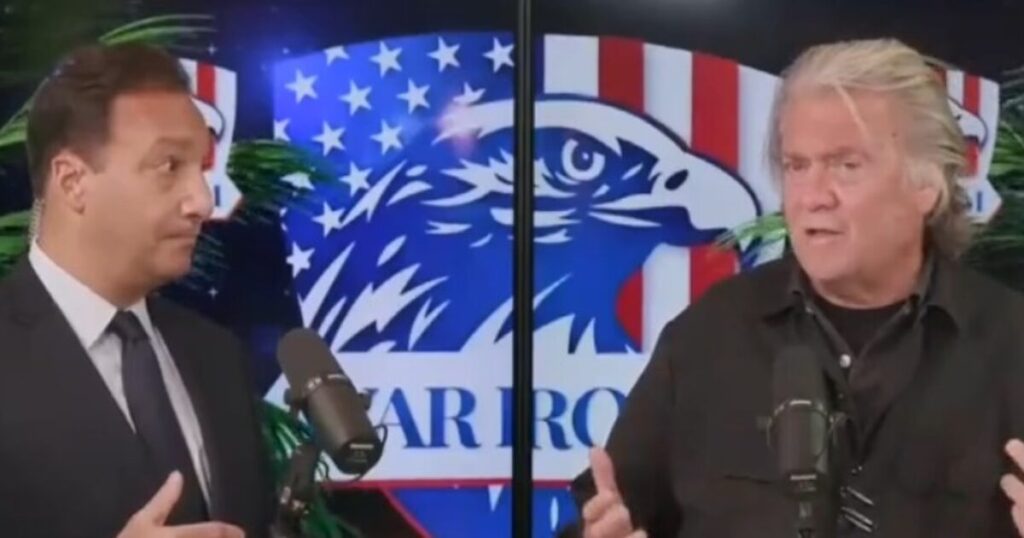In a recent discussion on War Room, Steve Bannon engaged with Jason Trennert, CEO of Stategas, to delve into the ways the Left is leveraging global markets to resist President Trump’s policies ahead of his anticipated return to power on January 20, 2025. Bannon critiqued mainstream media outlets like MSNBC for their biased narratives, particularly pointing out a recent commentary about impending economic disciplinary measures against Trump from financial markets. He argued that this portrayal misrepresents Trump’s strategies and plans for the country, implying that resistance from the Left is weakening as Trump’s potential comeback grows imminent.
Bannon asserted that global capital markets would be deployed in an effort to ‘discipline’ Trump, a notion he appears to contest as ineffective. In his conversation with Trennert, they both highlighted the unique position of the U.S. dollar as the world’s reserve currency, which grants the United States significant leeway in its economic decisions that less affluent nations cannot afford. Trennert emphasized that while global market pressures exist, the inherent advantages associated with a reserve currency render these pressures less potent, suggesting that the Left’s economic strategies may not yield the results they anticipate.
Expanding on this theme, Trennert cautioned about the dangers of running enormous budget deficits, which could threaten the value of the dollar. He characterized the United States’ fiscal operations as perilous when deficits reach six to seven percent of GDP, especially during times of full employment. Trennert articulated that while the market’s volatility and responses to government policies can be worrisome, it is the sustainability of fiscal practices that should be of greater concern, as they lay the foundation for long-term economic stability or crisis.
Both speakers expressed concern regarding the current financial climate, with Trennert referring to the economy as a “smoke and mirrors” construct over the past few years. Bannon echoed this sentiment, declaring that the economy is over-leveraged and underscoring the need for both a purge of the deep state and substantial reductions in federal spending. He warned of an impending global margin call—an economic adjustment that could reveal the unsustainability of current fiscal practices—and stressed that adopting a rational fiscal plan would be crucial to avoiding systemic financial crises.
At the crux of their discussion was the idea that the principles of fiscal responsibility must be reexamined as Trump prepares his re-entry onto the political scene. They posited that implementing intelligent economic strategies is essential, not only for maintaining the strength of the dollar but also for garnering support from a populace wary of government mismanagement. Bannon’s emphasis on the critical nature of spending cuts aligns with Trennert’s outlook on the importance of reversing budget deficits to protect the economy in the long run.
As Trump gears up for his return, the dialogue between Bannon and Trennert serves as a call to reassess fiscal responsibility within the broader strategy against political resistance, particularly from the Left. Their discussion highlights an evolving narrative regarding global economic dynamics, the power of the dollar, and the significance of sound economic governance that many believe will be pivotal in shaping the future of American policy as Trump re-enters the national conversation. Ultimately, the tension between maintaining economic stability while pushing forward a political agenda remains a key theme in their analysis, reflecting broader anxieties about responsible governance versus potential political turmoil.

